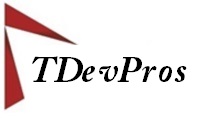Launching a Career: From Aspiration to Realization

Some career connections go beyond the immediate task at hand—they become transformative journeys that inspire growth, resilience, and long-lasting impact for everyone involved. One such story is about a talented scientist I had the privilege of recruiting early in her career. Her journey from academia to industry leadership is a testament to the power of finding the right opportunities and navigating the unexpected twists along the way.
From Academic Research to Industry Innovation
When I first met this scientist, she had recently completed her doctoral studies in immunology and virology and was finishing a post-doctoral fellowship with a prestigious research institute. Like many academics looking to transition into industry, she faced uncertainty about how to position her expertise in a corporate environment. Her passion for science and desire to make an impact were clear, but she needed the right opportunity to bridge the gap.
In 2015, I had the opportunity to recruit her to a leading biotech company that was in its early, high-growth stage. Joining as a scientist on a product sciences team, she quickly distinguished herself as a dedicated leader who thrived on solving complex challenges. Her work contributed to groundbreaking advancements in cell and gene therapy, setting the foundation for her future achievements.
Navigating the Ups and Downs of a Career
Over the years, this scientist advanced through various roles, gaining invaluable experience in leadership and innovation. She took on positions that allowed her to grow her expertise while navigating the dynamic nature of the biotech industry—an environment known for its rapid changes and high stakes.
Recently, she reached a significant leadership milestone, stepping into an executive role at a prominent organization. While this was an incredible accomplishment, the experience also came with challenges. Sometimes, even when the title and opportunity seem perfect on paper, the reality doesn’t fully align with expectations. Transitions like these are part of the career journey, offering valuable lessons in resilience, adaptability, and self-awareness.
Reflecting on Growth and Connection
What has stayed constant throughout her journey is the impact of those early foundational experiences. In a recent message, she shared her gratitude for the opportunity that helped launch her industry career, saying, “That role set the foundation for everything I’ve been able to achieve since. I’m so grateful for the journey and the people who supported me along the way.”
Her story is a reminder that a career path isn’t always linear, and success is about more than reaching the next milestone. It’s about finding roles and environments that align with your values, learning from every experience, and building connections that can support and guide you along the way.
The Role of a Coach and Recruiter
For me, as both a recruiter and coach, this story highlights why I love what I do. Helping someone identify their potential and connect with opportunities where they can thrive is incredibly rewarding. It’s not just about placing someone in a role—it’s about being part of a larger journey that continues to evolve. Seeing the impact that these early connections can have, even years later, reaffirms the importance of investing in people and their potential.
Celebrating Lifelong Journeys
While this scientist’s recent role didn’t turn out as planned, it’s clear that her career is still on an incredible trajectory. Challenges like these often open the door to even greater opportunities, and I have no doubt she will continue to make a profound impact in her field.
This experience has also reminded me of the ripple effect that relationships can have. The people we support and connect with often become part of our own networks, offering collaboration, inspiration, and mutual growth. It’s a cycle of giving and receiving that creates lasting value for everyone involved.
Your Career Journey
Every career has its ups and downs, but each step is an opportunity to grow, learn, and prepare for what’s next. Whether you’re just starting out, considering a career change, or navigating unexpected challenges, remember that success is about more than a single role. It’s about the journey and the people who support you along the way.
Have you experienced a pivotal career moment or found support that made a lasting difference? Let’s celebrate the power of connection and resilience together!


Recent Comments